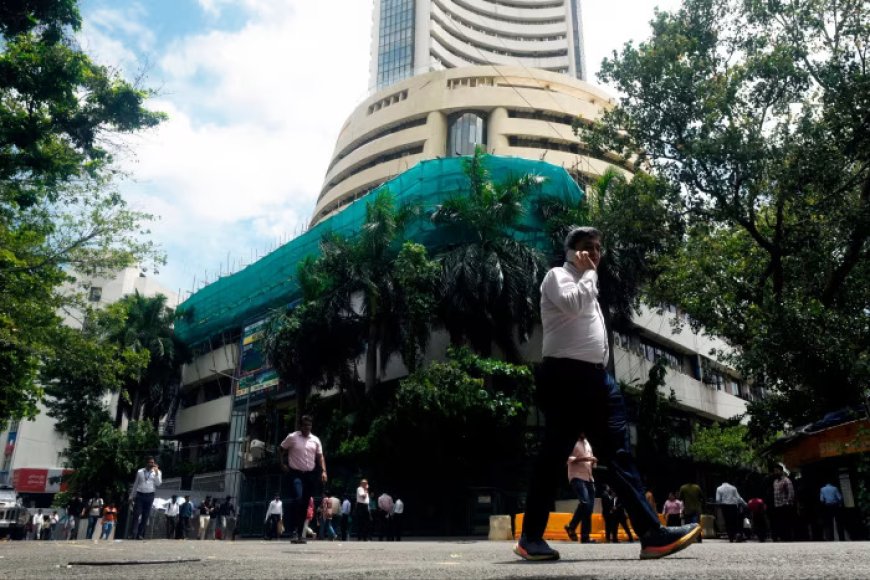Foreign Investors Flee Indian Markets Amid Economic Slowdown and Stock Decline
Foreign Investors Flee Indian Markets Amid Economic Slowdown and Stock Decline

Foreign investors withdrew over $10 billion from Indian equities in October, marking the largest monthly sell-off since the beginning of the pandemic, as concerns mount that the Indian market’s substantial rally might be faltering amidst economic slowdown.
India's major stock indices suffered their worst monthly declines since March 2020, with the rupee nearing a record low against the dollar as international interest wanes in one of the previously hottest markets globally.
Analysts warn that Indian stocks, which have surged more than threefold since March 2020, may face significant challenges as weak corporate earnings, signals of a slowing economy, and central bank actions to cool retail lending put pressure on the market.
Saurabh Mukherjea, chief investment officer at Marcellus Investment Managers in Mumbai, described the downturn as a “typical economic cycle,” questioning whether it will last a few quarters or extend longer. Mukherjea has been shifting his focus toward defensive stocks in sectors like IT and pharmaceuticals, which he expects to perform more reliably in uncertain times.
In addition to domestic economic concerns, investors have been selling off positions to brace for potential volatility due to the upcoming U.S. elections and to capitalize on a recent, stimulus-fueled surge in Chinese equities.
As of October’s outflows, foreign investment inflows into India for 2023 have dropped to a modest $2 billion. Despite some inflows earlier in the year, foreign ownership in Indian equities has fallen to a 12-year low, overshadowed by the growing enthusiasm among local retail investors.
Warning signs emerged in August, when data showed India’s GDP grew by just 6.7% for the April-June quarter, its slowest growth in over a year. Nomura economists cautioned that India’s “growth glass appears half-empty.”
The Nifty 50 index of leading Indian stocks dropped by 6.2% in October, while the Sensex saw a 5.8% decline, both marking their worst monthly losses since March 2020. Nevertheless, the MSCI India index remains valued at around 24 times forward earnings, slightly higher than the 23 times multiple for the S&P 500 in the U.S.
Additionally, broad underperformance across key Indian industries has dragged down stocks further. Goldman Sachs analysts downgraded their rating on Indian equities from “overweight” to “neutral” due to missed earnings expectations across several sectors.
Sunil Tirumalai, chief emerging markets strategist at UBS, noted that earnings downgrades in India have been substantial, affecting even typically stable sectors like consumer staples. Meanwhile, consumer confidence appears to be waning; vehicle sales have fallen, and major players like Hindustan Unilever report muted demand growth.
October also marked a turning point for Indian IPOs with Hyundai's $3.3 billion listing in India—the largest Asian IPO of the year—receiving a tepid response from retail investors. High valuation concerns and a slump in vehicle sales contributed to the cool reception.
Despite these challenges, Citigroup executives, who managed Hyundai’s Indian listing, expressed optimism, downplaying the potential for a long-term downturn. Rahul Saraf, head of India investment banking at Citi, noted that temporary market softening doesn’t affect the outlook for 2025 and added that several large clients are still “very interested” in pursuing an Indian IPO, suggesting the Hyundai listing might serve as encouragement rather than a deterrent.
















































